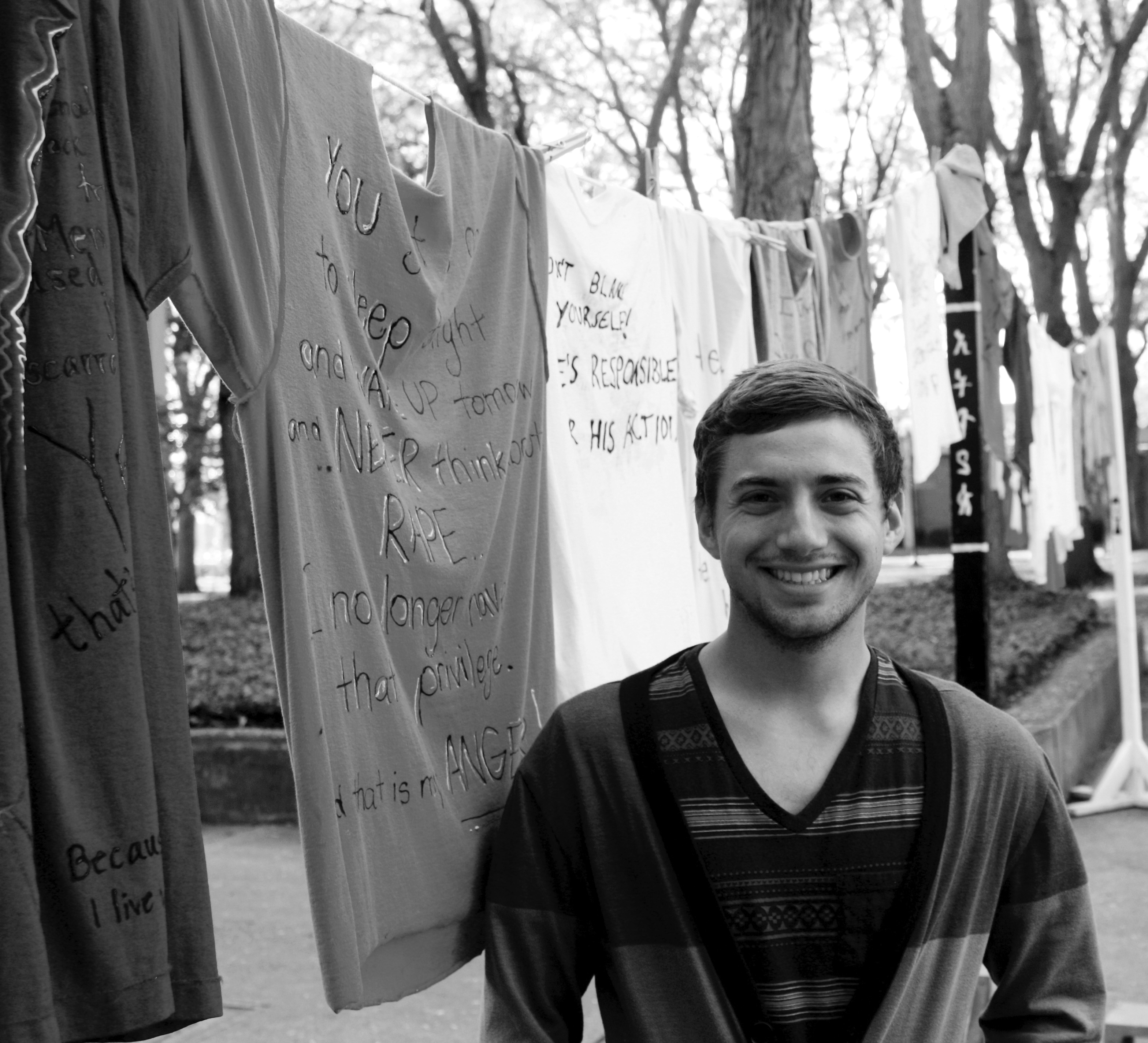What are we supposed to do in the face of men’s violence against women? How are we supposed to handle the appalling and incredible stories that are shared through events like the Clothesline Project? Why does our culture and society let this happen? These are all good questions to ponder during Sexual Violence Awareness Week, and every other week, for that matter. Listening and learning are key interpersonal steps that can be taken to start initiating change and healing within an uncomfortable and stigmatized topic.
Some men may feel like I am attacking them personally by addressing men’s violence against women. That is not my intention at all. Most men would never use violence against women, but I think we must recognize that gender plays a large role in these crimes. Many male perpetrators are left unaccountable, while many women survivors are left shamed and unsupported. To put this in perspective, 99% of sexual violence is perpetrated by men against women and other men or boys, with the vast majority being against women. Another statistic shows that one in four women report experiencing sexual violence in their lifetime. This statistic is helpful in understanding the prevalence of sexual violence, but it is also important to note that it is a conservative estimation for how many women actually experience sexual violence because of underreporting.So how do we begin to change this cycle? First, we must stop and actively listen to survivor’s stories from men’s violence. These stories are uncomfortable, heart breaking, and unbelievable, but necessary to hear and learn from. In order to show love and support for our sisters and brothers, we must act. It goes a long way to just sit with someone—sharing their pain, singing in solidarity during a vigil or celebrating a survivor’s strength and hope. Survivors’ stories can be incredibly powerful and inspiring, and we should follow their example of being courageous lights in the midst of stark darkness. Active listening also includes asking intentional questions of care. For example, “how do you feel now?” and “what can I do to help?” It does not include asking questions that imply the incident was the survivor’s fault. It is never and I mean never the survivor’s fault. These survivors are our sisters, fathers, aunts, professors, cousins and friends. Now is the time to support them.
The second way to bring about change is through education. It is time to be informed about sexual violence and cycles of violence. I would like to encourage all of you, especially men, to take Women’s Concerns. This class was humbling for me because it made me reflect on my own contributions to the question “why does our culture and society let this happen?” Through voices of once-silenced women, I realized that the social phenomenon of sexual violence is maintained and prolonged by male-dominance and eroticizing violence. Women’s Concerns opened my eyes to the ways I, as a male, have the opportunity to reverse these wrongs.
My passion for women’s issues stems from my close relationship with my twin sister. I have observed overt and covert sexism in her life, and it has never made sense to me. Growing up, Anika and I did many of the same activities, so it was natural to see her as an equal. It was a huge wake-up call when I realized that the culture I lived in discriminated against women—my sister. I want to protect my sister in any way I can, and I will use my privilege to be an advocate for her and other women. Obviously, I easily fall into the male-dominated culture, but being reminded and accountable is part of the learning process. None of us are free when others are being oppressed. It goes along with the old adage that if I am not a part of the solution; I am a part of the problem. I want to be a part of the solution and I encourage you to do the same. Let’s start making peace with listening, learning and eventually, leading.



